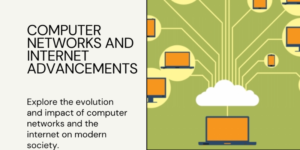The concept of the entrepreneurial mindset has gained significant attention in both academic research and practice, as it encapsulates the cognitive, behavioural, and emotional orientations that enable individuals to identify opportunities, take risks, and create value in uncertain environments. Unlike traditional employees who may seek stability, entrepreneurs thrive in ambiguity and dynamic contexts, often turning volatility into opportunity (Bailetti, 2012). This article explores the entrepreneurial mindset, its core characteristics, and its importance in today’s rapidly evolving business landscape.
1.0 Defining the Entrepreneurial Mindset
The entrepreneurial mindset refers to a way of thinking and acting that allows individuals to identify opportunities, innovate, and persevere in the face of challenges. Ratten (2010) describes it as being characterised by creativity, resilience, adaptability, and risk-taking. More recently, Pidduck et al. (2023) conceptualise it as a blend of dispositional beliefs, opportunity beliefs, and entrepreneurial behaviours, suggesting that mindset is not only about traits but also about learned patterns of thought and action.
Educational institutions have increasingly recognised the importance of cultivating an entrepreneurial mindset among students, even those not intending to start businesses, because it enhances problem-solving skills, critical thinking, and innovation capacity (Li et al., 2016). For example, the UK has embedded entrepreneurship education into curricula to foster employability and adaptability in graduates (Fayolle & Loi, 2021).
2.0 Key Characteristics of the Entrepreneurial Mindset
2.1 Creativity and Innovation Orientation
Entrepreneurs are often described as creative problem-solvers who challenge the status quo and generate novel ideas. Creativity provides the foundation for opportunity recognition, while innovation translates those ideas into viable solutions (Tidd & Bessant, 2020). For instance, Steve Jobs exemplified creativity by integrating design, technology, and user experience, leading to revolutionary products such as the iPhone. Research confirms that creativity and openness to experience are positively linked with entrepreneurial intentions (Al-Ghazali et al., 2022).
2.2 Resilience and Persistence
Resilience refers to the ability to recover from setbacks and maintain motivation in the face of adversity. Entrepreneurs frequently experience failure, yet those with a resilient mindset use failure as a learning opportunity (Kuratko et al., 2021). Elon Musk provides a powerful example of resilience, overcoming multiple failures in ventures such as SpaceX before achieving success. According to Ratten (2023), resilience is one of the most critical characteristics in navigating the uncertainties of entrepreneurship.
2.3 Adaptability and Flexibility
The entrepreneurial environment is marked by rapid change. Entrepreneurs must continuously adapt their strategies, business models, and products to evolving market needs. Adaptability is seen in companies such as Netflix, which transitioned from DVD rentals to online streaming, later moving into original content production to sustain its competitive advantage. Research highlights that adaptability is associated with opportunity exploitation and firm survival (Naumann, 2017).
2.4 Risk-Taking Propensity
A willingness to take calculated risks is a hallmark of entrepreneurship. While entrepreneurs do not engage in reckless behaviour, they are more comfortable with uncertainty and more inclined to pursue high-risk, high-reward opportunities compared to non-entrepreneurs (Mathisen & Arnulf, 2014). For example, Richard Branson consistently pursued ventures in diverse industries, from airlines to space tourism, driven by a risk-tolerant mindset.
2.5 Self-Efficacy
Self-efficacy—the belief in one’s capability to perform tasks and achieve goals—is strongly linked to entrepreneurial success (Bandura, 1997; Carlsson et al., 2013). Entrepreneurs with high self-efficacy are more likely to pursue opportunities, persist in adversity, and influence others. Studies show that self-efficacy predicts entrepreneurial intentions across cultures (Kwapisz et al., 2022).
2.6 Proactiveness
Entrepreneurs are typically proactive, anticipating future trends and acting before competitors. Proactiveness involves scanning environments for signals and positioning ventures strategically (Daspit et al., 2023). For example, Jeff Bezos anticipated the potential of e-commerce long before it became mainstream, positioning Amazon as a global leader.
2.7 Opportunity Recognition
At the core of entrepreneurship lies the ability to identify and evaluate opportunities. Ardichvili et al. (2003) argue that opportunity recognition is influenced by prior knowledge, social networks, and alertness. Entrepreneurs often see connections where others see chaos, turning market gaps into viable ventures. For instance, Airbnb recognised the underutilisation of private homes as a lodging resource, creating an entirely new market.
3.0 Entrepreneurial Mindset in Practice
The entrepreneurial mindset is not confined to business founders. Corporate managers, freelancers, and even public sector leaders benefit from entrepreneurial thinking. This has led to the concept of intrapreneurship, where employees apply entrepreneurial characteristics within established organisations to drive innovation (Hisrich & Kearney, 2014). Google’s “20% time” initiative, which allowed employees to pursue personal projects, gave rise to products like Gmail—demonstrating intrapreneurial creativity and autonomy.
Moreover, studies show that cultivating an entrepreneurial mindset enhances employability and career adaptability. For example, Ferreira & Gonçalves (2023) found that individuals with entrepreneurial traits such as initiative and resilience are better positioned to thrive in start-ups and fast-paced industries.
4.0 Educational and Policy Implications
Given its importance, fostering an entrepreneurial mindset has become a policy and educational priority. Programmes such as the European Commission’s “EntreComp” framework highlight the need for teaching entrepreneurial competences across education levels. Fayolle & Loi (2021) argue that experiential learning, such as business simulations, start-up incubators, and mentoring, is more effective than traditional lectures in developing entrepreneurial characteristics.
Governments and institutions can also play a role by creating ecosystems that support entrepreneurial development. Start-up hubs like Silicon Valley thrive not only because of individual entrepreneurs but also due to supportive networks of universities, investors, and policies that encourage risk-taking and innovation (Celestin & Vanitha, 2018).
5.0 Critiques and Limitations of the Entrepreneurial Mindset Concept
While the entrepreneurial mindset is widely celebrated, scholars caution against oversimplification. Some argue that mindset is context-dependent and cannot be reduced to a fixed set of traits (Belousova & Hattenberg, 2021). Others highlight the potential downsides: excessive risk-taking may lead to financial instability, while relentless proactiveness can cause burnout (Kuratko et al., 2021).
Additionally, cultural differences influence how entrepreneurial traits are expressed. For example, risk-taking may be more valued in Western contexts but less accepted in collectivist cultures where failure carries higher social costs (Srivastava, 2025). Therefore, a nuanced understanding of entrepreneurial mindset must consider individual, cultural, and environmental factors.
The entrepreneurial mindset is a multifaceted construct encompassing creativity, resilience, adaptability, risk-taking, self-efficacy, proactiveness, and opportunity recognition. It plays a central role in enabling entrepreneurs to navigate uncertainty and transform ideas into ventures. However, it is not exclusive to business founders; professionals across industries can benefit from entrepreneurial thinking to drive innovation and adaptability.
Understanding these characteristics has implications for education, policy, and practice, as fostering entrepreneurial mindsets equips individuals to thrive in an uncertain, fast-changing global economy. While challenges exist in defining and measuring it, the entrepreneurial mindset remains a cornerstone of both entrepreneurial success and societal progress.
References
Al-Ghazali, B.M., Shah, S.H.A. & Sohail, M.S. (2022). The role of five big personality traits and entrepreneurial mindset on entrepreneurial intentions among university students. Frontiers in Psychology, 13, 964875.
Ardichvili, A., Cardozo, R. & Ray, S. (2003). A theory of entrepreneurial opportunity identification and development. Journal of Business Venturing, 18(1), pp.105–123.
Bailetti, T. (2012). Technology entrepreneurship: Overview, definition, and distinctive aspects. Technology Innovation Management Review, 2(2), pp.5–12.
Bandura, A. (1997). Self-efficacy: The exercise of control. Freeman.
Belousova, O. & Hattenberg, D.Y. (2021). Defining the entrepreneurial mindset. International Journal of Entrepreneurship and Small Business, 44(1), pp.1–22.
Carlsson, B., Braunerhjelm, P. & McKelvey, M. (2013). The evolving domain of entrepreneurship research. Small Business Economics, 41(1), pp.1–18.
Celestin, M. & Vanitha, N. (2018). Entrepreneurial mindset: The science behind success and failure. International Journal of Research and Analytical Reviews, 5(4), pp.343–352.
Daspit, J.J., Fox, C.J. & Findley, S.K. (2023). Entrepreneurial mindset: An integrated definition and review of current insights. Journal of Small Business Management, 61(4), pp.991–1006.
Fayolle, A. & Loi, M. (2021). Impact of entrepreneurship education: Overview of past and future trends. International Journal of Entrepreneurship Education, 19(1), pp.95–117.
Ferreira, F.L. & Gonçalves, C.A. (2023). Personality traits, mindset and entrepreneurial potential of individuals in start-ups. Gestão.Org, 21(3), pp.45–62.
Hisrich, R. & Kearney, C. (2014). Managing innovation and entrepreneurship. Sage.
Kuratko, D.F., Fisher, G. & Audretsch, D.B. (2021). Unravelling the entrepreneurial mindset. Small Business Economics, 57(1), pp.1–14.
Li, C.Q., Harichandran, R.S., Carnasciali, M.I. & Erdil, N.O. (2016). Development of an instrument to measure entrepreneurial mindset of engineering students. Journal of Engineering Entrepreneurship, 7(3), pp.5–19.
Mathisen, J.E. & Arnulf, J.K. (2014). Entrepreneurial mindsets: Theoretical foundations and empirical properties of a mindset scale. International Journal of Management Science, 10(1), pp.21–40.
Naumann, C. (2017). Entrepreneurial mindset: A synthetic literature review. Entrepreneurial Business and Economics Review, 5(3), pp.149–172.
Pidduck, R.J., Clark, D.R. & Lumpkin, G.T. (2023). Entrepreneurial mindset: Dispositional beliefs, opportunity beliefs, and entrepreneurial behaviour. Journal of Small Business Management, 61(3), pp.569–590.
Ratten, V. (2010). Entrepreneurial management: A theoretical approach. Pearson.
Ratten, V. (2023). Entrepreneurship: Definitions, opportunities, challenges, and future directions. Global Business and Organisational Excellence, 42(5), pp.6–17.
Srivastava, A. (2025). Understanding entrepreneurial mindset in young adults: Traits, gender, and regional influences. Journal of Marketing & Social Research, 12(1), pp.55–72.
Tidd, J. & Bessant, J. (2020). Managing innovation. Wiley.









